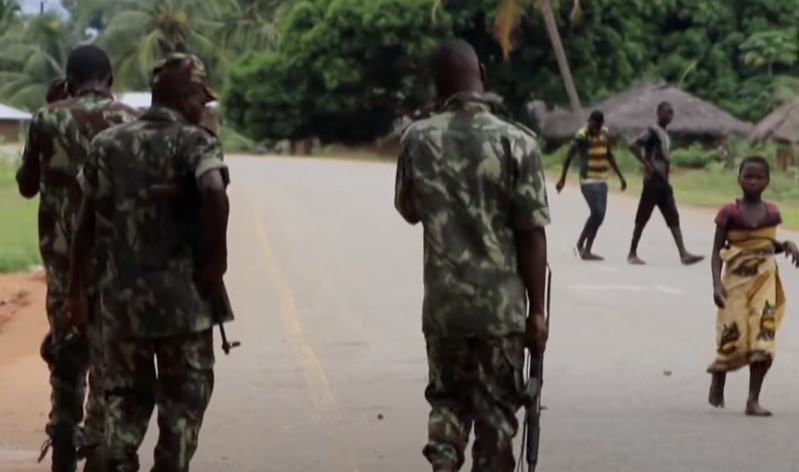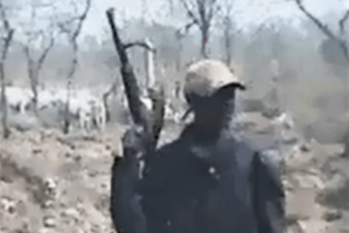
A proposed law to regulate the registration and formation of religious groups in Mozambique is likely to compound the scale of persecution of Christians in the country.
A joint report released by World Evangelical Alliance, Open Doors International, and the Associação Evangélica de Moçambique (AEM), observed that the legislation disproportionately requires Christian groups to collect no fewer than 2,000 notarized signatures to register and would mandate theological qualifications for leaders.
At the same time, Islamic institutions receive exemptions. The government subjects establishment of mosques only to jurisprudential requirements within Sunni, Shiite and Ismaili traditions. Local authorities have already begun enforcing provisions of the pending legislation, the report notes.
Amid an onslaught of attacks on churches, abductions and executions by the Islamic State-affiliated armed militants from Ahlu-Sunnah wal Jama’ah (ASWJ), the WEA, Open Doors and AEM expressed their concern about the impact of the legislation on small Christian congregations and house churches. Some Christian leaders already face arrest for establishing churches – even before lawmakers pass the new law.
“Withdraw the draft Law on Religious Freedom and ensure that legal frameworks regulating religious communities fully comply with Article 18 ICCPR and Article 54 of the Constitution,” noted the report, titled, “Universal Periodic Review 52nd Session: Freedom of Religion, Gender-based Violence, and Human Security.”
The report, addressed to the U.N. Human Rights Council, paints a grim picture of escalating religious violence in northern Mozambique by Islamic militants.
Open Doors documented 56 Christians killed for their faith during the 2025 reporting period. Militants attacked or forced the closure of over 100 churches, and abducted 13 Christians in faith-related incidents. Thousands more fled their homes, joining the growing ranks of internally displaced persons in northern Mozambique.
In September alone, ISMP shot or beheaded at least 11 Christians and burned more than 130 homes in northern Mozambique’s Cabo Delgado Province, according to terrorism monitors.
The violence has left communities shattered. In Muanquina village, Nassivare, Chiúre District, attackers torched two churches and 43 homes belonging to Christian families.
On Aug. 3, militants struck Naphela village in the early morning hours. A youth pastor from an Assemblies of God church watched helplessly as ASWJ fighters captured nine of his family members, ranging from 9 to 35 years old. Months later, he still has no word of their fate.
Two nights earlier, armed militants ambushed Marera village at dusk. They seized 15 members of a single Christian family at the village edge, bound them, and executed them. Some victims attended the Church of Christ, a congregation militants had already destroyed in an earlier raid.
These atrocities violate Article 40 and Article 54 of Mozambique’s Constitution, the joint report states. They also breach the country’s obligations under the International Covenant on Civil and Political Rights, particularly the right to life and freedom of religion.
The Price of Conversion
Converts from Islam to Christianity face severe consequences in northern Mozambique. Communities ostracize them, stripping them of property and economic opportunity. Families divorce them. Neighbors threaten them with violence.
Women who convert bear the heaviest burden. Communities banish them, and their children suffer alongside them. The converts endure psychological pressure, face bribery attempts, and watch as organized campaigns work to force them back to Islam. The result: trauma, poverty, and profound isolation.
The violence has displaced more than 600,000 people across northern provinces, compounded by natural disasters. In July alone, over 46,000 people fled Cabo Delgado’s Chiúre, Ancuabe and Muidumbe districts. More than 42,000 people –over half of them children – have been uprooted from Chiúre.
Religious leaders now demand decisive government action to protect Christian communities. But opinions diverge on solutions.
“I don’t really like to talk only about religious radicalism, because, for me, it’s necessary to clearly identify the root causes of this war, this suffering, and all these killings,” Archbishop Inácio Saure told local media.
The archbishop rejects military intervention as a solution.
“We absolutely need to think of another solution, because the military route will only kill, there are many people already dying, there are many decapitations, and the war never ends,” he said.
Mozambique ranks 37th on Open Doors’ 2025 World Watch List of the 50 countries where Christians face the most severe persecution. Christians comprise 55.6 percent of Mozambique’s population, while ethno-religionists account for 26 percent and Muslims 17.7 percent, according to the report.
The report urged the government to restore order in the north and alleviate suffering in the communities. It proposed a development of a comprehensive national strategy to prevent and counter violent extremism and radicalization, in line with The United Nations Global Counter-Terrorism Strategy.






